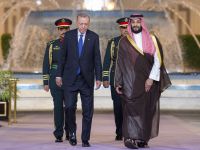Ericsson study: Quadrupling GCC broadband speed can boost GDP by more than 8 billion USD

Quadrupling the speed of broadband in the Gulf Cooperation Council (GCC) has the potential to contribute an additional 0.6* percent to the nation’s Gross Domestic Product (GDP). The findings are based on research jointly conducted by Ericsson, Arthur D. Little and Chalmers University of Technology.
Significantly, while doubling the country’s broadband speed would lead to a 0.3 percent increase in GDP worth almost USD4.178billion, quadrupling Internet access speeds would add approximately USD8.356billion or a growth of 0.6 percent. The study also shows that additional doublings of speed can yield corresponding GDP growth stimuli.
“Broadband has emerged as a significant driver of economic growth even as we continue to evolve from an information society to what we, at Ericsson, call a Networked Society,” said Anders Lindblad, president, Ericsson Region Middle East and North Africa. “There is no doubt in my mind that Broadband, whether mobile or fixed-line, is a vehicle for economic growth, innovation and productivity.
He added: “The government and telecom operators here in the GCC have clearly recognized the importance of broadband and this is reflected in their collective efforts to achieve higher penetration across the region through fixed and mobile broadband solutions.”
Both broadband availability and speed are strong drivers in an economy. In 2010, Ericsson and Arthur D. Little concluded that for every 10 percentage point increases in broadband penetration, GDP increases by 1 percent.
This growth stems from a combination of direct, indirect and induced effects. Direct and indirect effects provide a short to medium term stimulus to the economy. The induced effect, which includes the creation of new services and businesses, is the most sustainable dimension and could represent as much as one third of the mentioned GDP growth.
This study is the first of its kind in that it quantifies the economic impact of increases in broadband speed in a comprehensive scientific method using publicly available data.
Background Information
Ericsson
Ericsson is one of the leading providers of Information and Communication Technology (ICT) to service providers, with about 40% of the world’s mobile traffic carried through our networks. We enable the full value of connectivity by creating game-changing technology and services that are easy to use, adopt and scale, making our customers successful in a fully connected world. For more than 140 years, our ideas, technology and people have changed the world: real turning points that have transformed lives, industries and society as a whole.






